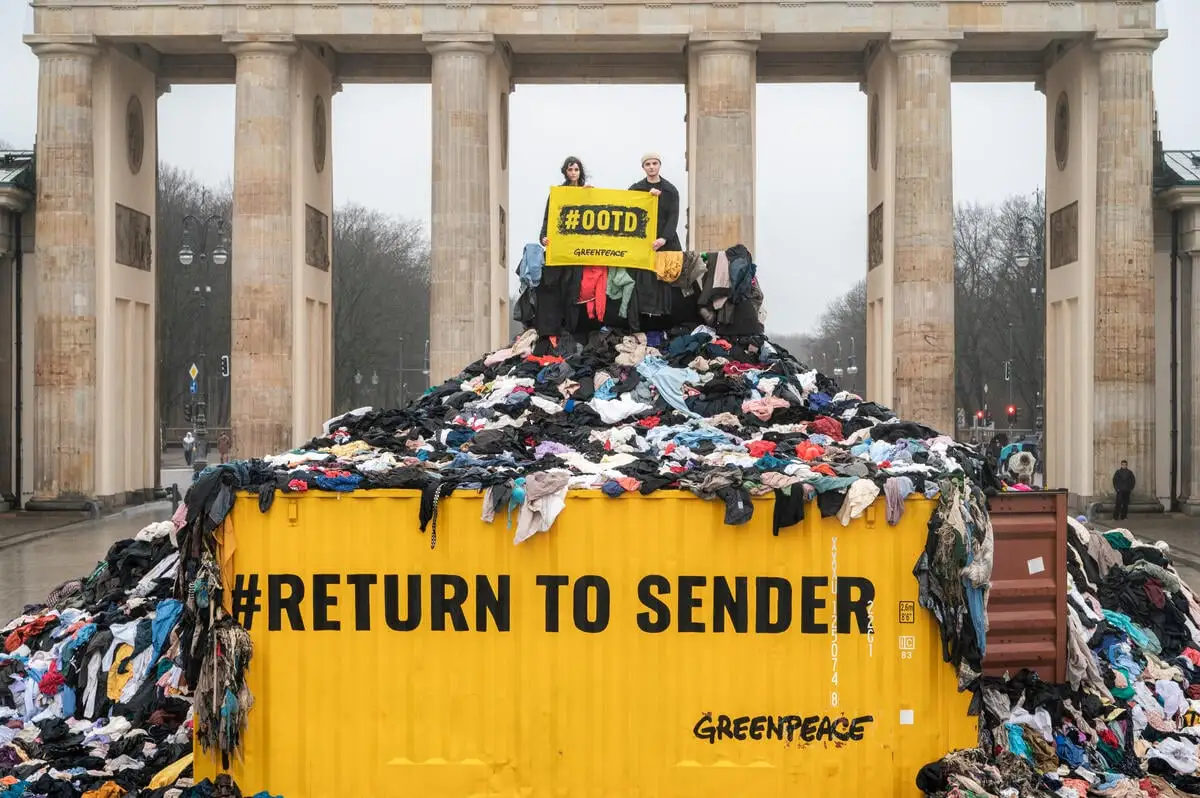This story was originally posted by Greenpeace Africa.
For several years now, my country Ghana has been dealing with a silent plague: second-hand clothes. Behind its booming cocoa industry, vibrant culture and delicious food, this plague is choking our water bodies and toxifying our land. Why do I call them a plague? Because of the huge volumes of Western exports of discarded fast fashion.
Ghana was once declared home to the world’s largest electronic waste dump, due to the tonnes of e-waste being dumped into the country. But many are not aware of the further burdens that wealthy countries, especially in Europe and North America, continue to place on us.
For those reading this and living in the West, have you ever considered what actually happens to your clothing when you donate them? And do you assume donations end up in your home town or city? Well to answer that question – a lot of it comes to cities in Africa like Accra, flooding our flea markets before choking our rivers and lagoons, polluting our beaches and destroying marine life in our ocean – places they really shouldn’t be.
Second-hand clothes have long been important to Ghana’s local economy. Kantamanto market in Accra, established in the 1970s, is one of the largest second-hand markets in the world, with over 30,000 workers who sell, clean, repair and upcycle the Global North’s textile waste. But the growth of fast fashion since the 2000’s has led to increasing quantities of poorer quality clothing, and overproduced fast fashion arriving in overwhelming volumes. Ghana now receives an annual total of about 152,600 tonnes of second-hand clothes, known as Oburoni Wawu, literally translated as “dead white man’s clothes”. Every week, around 100 forty foot long containers, filled with over 15 million fashion items, arrive in the port of Tema, Ghana’s largest port, east of Accra. About 70% of these clothes are sent to Kantamanto market.
In October 2023, Greenpeace Africa and I joined forces with our colleagues at Greenpeace Germany on a research trip to document the situation in Ghana. Our aim was simple – to find out from local communities how this impacts their lives, how they feel about the vast quantities of used clothes being imported and to intervene by bringing just a small proportion of these clothes back to Europe – where they belong.
Our journey began in Old Fadama, Accra’s biggest informal settlement in Accra with over 80,000 inhabitants and home to a large and growing dumpsite. The mountains of clothes were huge. The smell was potent. And climbing to the top of them felt like standing on the monuments of our overconsumption – a harsh reminder of the fashion industry’s contribution to climate colonialism.



The problem with your stereotypical Africa is that charities are dumping free goods. These charities should instead get the local community to set up a church to employee people but of course that isn’t going to happen as they want everyone in Africa to see the world exactly as the charity does.
Just to be clear I’m not blaming Christianity. You should be dedicated to your faith but Christian missionaries don’t exactly have a good history.
Idk why you’re being downvoted. It’s always better to employ people and allow them to earn money rather than give them free stuff and destroy a local industry.